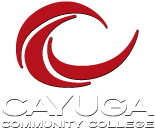APPLYING FOR A VISA
APPLYING FOR NON-IMMIGRANT VISA (STUDENT VISA)
The following links provide detailed information regarding the process for applying for a non-immigrant visa:
F-1 STUDENTS:
STEPS FOR APPLYING FOR AN F-1 STUDENT VISA
- Receive your I-20 Form and Acceptance Letter from Cayuga Community College
- Review your documents to make sure all the information is correct, and sign the I-20
- Pay the I-901 Fee at https://www.ice.gov/sevis/i901. See SEVIS I-901 Fee Frequently Asked Questions.
- Find the consulate near you on the American Embassy or Consulate Visa Consul website
- Apply and make an appointment for an interview
- Visit U.S. State Department’s Student Visa for additional information on the following:
- Required Documentation
- Required Visa Fees
- Requirements for spouses and children
Please check for the visa wait times for your specific city/country at https://travel.state.gov/content/travel/en/us-visas.html.
IMPORTANT NOTE: F and M Visas for new students can now be issued up to 365 days in advance of the start date for a course of study. Students are still prohibited from using their Visa to enter the United States more than 30 days prior to the program start date.
DOCUMENTATION
Gather and prepare the following required documents before your visa interview:
- Passport valid for travel to the United States – Your passport must be valid for at least six months beyond your period of stay in the United States (unless exempt by country-specific agreements).
- Non-immigrant Visa Application, Form DS-160 confirmation page.
- Application fee payment receipt, if you are required to pay before your interview.
- Photo – You will upload your photo while completing the online Form DS-160. If the photo upload fails, you must bring one printed photo in the format explained in the Photograph Requirements.
- Form I-20 – Cayuga Community College will send you a Form I-20 once they have entered your information in the SEVIS database. You and the DSO official must sign the Form I-20. All students must be registered in the Student and Exchange Visitor System (SEVIS). Your spouse and/or minor children, if they intend live in the United States with you, will each receive an individual Form I-20.
ADDITIONAL DOCUMENTATION MAY BE REQUIRED
A consular officer will interview you to determine your qualifications for a student visa and may request additional documents, such as evidence of:
- Your academic preparation, such as:
- Transcripts, diplomas, degrees, or certificates from schools you attended; and
- Standardized test scores required by your U.S. school;
- Your intent to depart the United States upon completion of the course of study; and
- How you will pay all educational, living and travel costs.
Review the instructions for how to apply for a visa on the U.S. Embassy or Consulate website where you will apply.
VISA INTERVIEW PROCESS
An interview with the American Embassy or Consulate is a crucial component to the visa application process. The following information regarding required documentation can also be found on the travel.state.gov website.
This interview is typically only 2-3 minutes in length. In that short amount of time, you must be able to prove the following:
- Have strong ties to your home country, which demonstrates your intention to return home after your studies
- Have sufficient funds to pay for your financial needs while you are studying in the U.S. This includes tuition, health insurance, housing and travel expenses etc.
- Have legitimate intentions to study full-time and gain education and training which will be useful in your home country. Below are some helpful tips for you to consider when you go to the U.S. Embassy or Consulate to apply for your student visa. Your chances of being granted a visa are highest if you follow each suggestion carefully:
- Demonstrate your intent to return to your country
- Show the officer that you have strong ties to your home country and that your reasons for returning home are stronger than your reasons for staying in the United States.
- The officer may ask about your intentions or prospects for future employment, family or other relationships, educational objectives, and long-term plans in your home country.
- Speak in English, if possible.
- Listen carefully to the question asked. Answer that question only. Explain how further study in English will help you in the future.
- Know about CCC and how it fits into your career plan
- Be prepared to explain why you want to study in a particular program in the U.S.
- Keep your answers short.
- Because of the high number of applications, consular officers must conduct quick, efficient interviews. They usually decide based on impressions formed during the first few minutes. Keep your answers short and to the point.
- Supplemental Documentation
- The officer should be able to easily see which documents you have and why you are presenting them. Lengthy explanations cannot be evaluated quickly.
